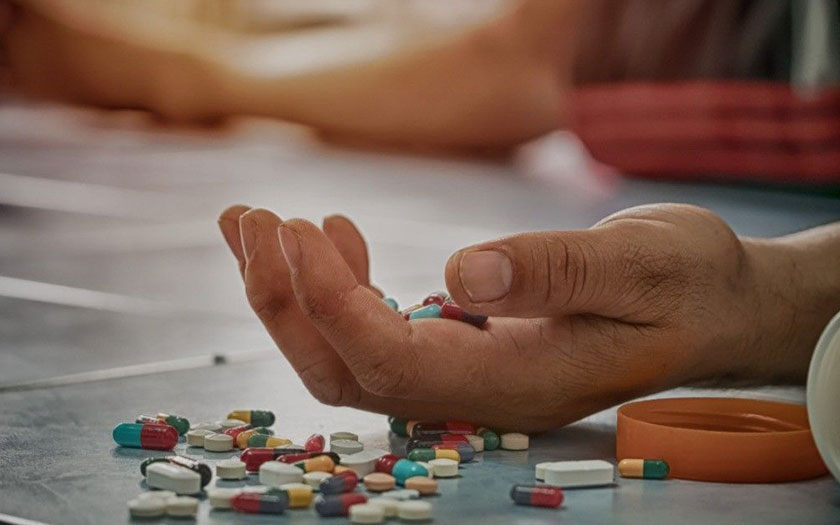Pain Management and Opioids
It’s never easy to deal with any sort of physical pain. While opioids are prescribed because they can effectively relieve pain, these drugs are known to carry some risks and can be highly addictive.
What are the risks and complications from using them to cope with pain? How can opioids be used safely to treat chronic pain? To find out more about pain management and opioids, Natural Health talks to Dr. Sabbir Ahmad, a Consultant Orthopaedic surgeon with special interest in sports arthroscopic surgery at Pantai Hospital Ampang and Dr. Ambiga A/P Chelliah Consultant Anaesthetist at Columbia Asia Hospital – Tebrau.
What Are Opioids?
Dr. Sabbir Ahmad: Generally, opioids are a class of drugs which are used medically to relieve pain.
Dr. Ambiga: Opioids are naturally found in the opium poppy plant. All opioids are chemically related and interact with opioid receptors on the nerve cells in the body and brain. They produce a variety of effects including pain relief, euphoria and a feeling of happy or “high”. Opioids can be a prescription medication such as Tramadol, Pethidine, Morphine, Fentanyl and Oxycontin or they can be so-called street drugs such as Heroin.
Are Opioids Really Necessary? What Is Your Opinion?
Dr. Ambiga: Well, it depends on what are we using opioids for. In terms of relieving an acute post-surgical pain, we have moved away from using opioids. Opioid-free anaesthesia is being widely used to minimize or negate opioid use altogether. In terms of chronic pain, we have other modalities to confer analgesia as well. Having said that, opioids come in handy when it comes to patients who are allergic to other non-opioid analgesic drugs.
Dr. Sabbir Ahmad: In the medical line, opioids are used to bring about pain relief, especially to post-operative patients or in performing some procedures such as close manipulation and reduction of fractures. It is usually not used as a first line of medication for pain relief.

Will patients get addicted to opioids?
Dr. Sabbir Ahmad: Regular use of opioids can increase the tolerance and dependence, requiring higher and more frequent doses, which can lead to addiction.
Dr. Ambiga: Patients will not get addicted to opioids if opioids are used within therapeutic doses. However, with the increasing misuse of prescription and non-prescription opioids, the incidence of opioid addiction is becoming a rampant issue.
For those with a history of drug abuse, what are the risks of taking opioids?
Dr. Ambiga: Drug abusers generally require a higher dosage of opioids to bring about the same effects as other patients as they have developed higher tolerance to opioids.
What are some of the side effects of opioids?
Dr. Ambiga: Opioids come with various side effects; namely nausea, vomiting, pruritus, urinary retention, ileus, constipation, respiratory depression, sedation and tolerance.
Will patients overdose on opioids? How do we prevent this?
Dr. Ambiga: If opioids are used unscrupulously without adequate medical knowledge, then yes patients can get an overdose. Therefore, it is of utmost importance that opioid is prescribed judiciously and titrated according to the requirements of each individual patient instead of one blanket rule fits all approach. Many factors would influence this decision; mainly patient characteristics which include age, weight, medical condition as well as the problem for which the opioid is being prescribed for.
Dr. Sabbir Ahmad: Overdosing on opioids can be lethal. High doses can slow down breathing and the heart rate, which can lead to death. Risk of dangerous side effects can be reduced by following the doctor’s instructions carefully and taking the medication exactly as prescribed. Availability of opioids must also be strictly controlled and enforced.
What are some of the ways that can we manage pain without opioids?
Dr. Ambiga: There are a multitude of alternatives to which pain management can be delivered optimally. Pharmacological methods include Paracetamol, non-steroidal anti-inflammatory drugs such as Voltaren and Ponstan, Cox 2 inhibitors such as Celebrex and Arcoxia, local anaesthetics such as Lignocaine, Bupivacaine, Levobupivacaine and Ropivacaine. Other adjuvants are dexamethasone, ketamine, magnesium sulphate, dexmedetomidine, gabapentin and nitrous oxide.
Dr. Sabbir Ahmad: Pain can also be managed alternatively by non-opioid medications, physiotherapy, muscle and joints strengthening and mobility and in certain. Instances hypnotherapy also slows promising results.
Dr. Ambiga: We can also combat pain using non-pharmacological approaches such as acupuncture, massage, hypnotherapy, relaxation technique and cognitive therapy.





















Leave a comment